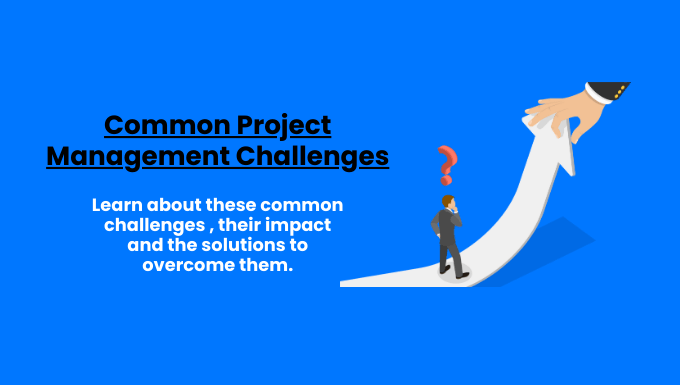Project management for startups is the secret sauce that turns big ideas into successful realities.
Startups face unique challenges, but with effective project management, you can boost efficiency, foster team collaboration, and achieve sustainable growth.
Ready to transform your startup’s potential? Let’s dive in!
Key Takeaways:
- Boost Efficiency: Project management streamlines processes, saving precious time and resources.
- Enhance Collaboration: It fosters better team communication, aligning everyone toward common goals that are crucial for a successful project.
- Mitigate Risks: Identifying and managing risks early prevents costly setbacks.
- Set Clear Goals: Defining specific objectives ensures projects contribute to your startup’s success.
- Delegate Effectively: Assign tasks based on team strengths to empower your workforce.

Contents
ToggleUnderstanding Project Management
What is Project Management?
Ever tried herding cats?
Well, project management is a bit like that, but with more spreadsheets and fewer furballs.
At its core, project management is the art of getting things done on time, within budget, and without losing your sanity in the process.
Definition and Key Components
Project management is the application of knowledge, skills, tools, and techniques to project activities to meet project requirements.
It’s like being the conductor of an orchestra, but instead of musicians, you’re coordinating tasks, timelines, and team members.
Key components include:
- Planning: Mapping out the journey from A to Z (and all the detours in between).
- Execution: Turning those plans into reality (cue the montage music).
- Monitoring: Keeping an eagle eye on progress (like a helicopter parent, but for projects).
- Closure: Wrapping things up neatly (and hopefully with a celebratory dance).
Core Project Management Skills
To be a project management maestro, you’ll need to master these skills:
- Leadership: Inspiring your team to greatness (or at least to meet deadlines).
- Communication: Ensuring everyone’s on the same page (and speaking the same language).
- Time Management: Because time is money, and in startups, both are in short supply.
- Risk Management: Preparing for the worst while hoping for the best is essential in any project lifecycle.
According to the Project Management Institute’s Pulse of the Profession 2021 report, organizations that undervalue project management report 67% more of their projects failing outright.
So, these skills aren’t just nice-to-haves, they’re essential for startup survival.
Benefits of Project Management for Startups
Now, let’s talk about why project management is the secret sauce for startup success.
It’s not just about keeping things organized, it’s about supercharging your startup’s potential.
1. Improved Efficiency and Productivity
Project management is like giving your startup a turbo boost.
It streamlines processes, cuts out the fluff, and gets everyone moving in the same direction.
2. Enhanced Team Collaboration
Gone are the days of the lone wolf entrepreneur.
Modern startups thrive on teamwork, and project management is the glue that holds it all together.
- Facilitates better communication among team members.
- Creates a shared vision and purpose.
- Fosters a culture of accountability and transparency.
A study by Atlassian found that teams with effective collaboration are 5 times higher-performing than their less collaborative counterparts.
That’s the power of project management in action.
3. Risk Mitigation
In the startup world, risks lurk around every corner.
Project management is your radar system, helping you spot and neutralize threats before they torpedo your dreams.
- Identifies potential risks early in the game.
- Develop contingency plans (because Plan B is just as important as Plan A).
- Manages uncertainty in a structured way.
By embracing project management, you’re not just organizing tasks, you’re setting your startup up for long-term success.
It’s like giving your business a superpower, minus the radioactive spider bite.
The Role of Project Management in Startup Success
Ever wondered why some startups seem to effortlessly rocket to success while others fizzle out faster than a cheap firework?
The secret ingredient often comes down to effective project management.
Let’s dive into how project management can be the wind beneath your startup’s wings.
1. Aligning Projects with Business Goals
Picture this: You’re the captain of a ship, and your business goals are the North Star.
Project management is your trusty compass, ensuring every project you undertake is steering you in the right direction.
Setting Clear Objectives
Clear objectives are like GPS coordinates for your startup’s journey.
They tell you exactly where you’re headed and how to get there. Here’s how project management helps:
- Break down lofty business goals into tangible, actionable projects.
- Ensures every team member understands their role in the bigger picture.
- Keeps everyone rowing in the same direction (because who wants to go in circles?).
Example: Aligning Product Development with Market Needs
Let’s say you’re developing a new app.
Without project management, you might end up with a beautiful product that solves a problem no one has.
Oops!
With project management:
- You conduct market research to identify user needs.
- Set clear objectives based on those needs.
- Break down the development process into manageable sprints.
- Regularly check in with potential users for feedback.
- Adjust your course as needed without losing sight of the end goal.
Result?
A product that people actually want to use. It’s like being a mind reader, but with spreadsheets!
2. Enhancing Team Collaboration
Remember the old saying, “Teamwork makes the dream work”?
Well, in the startup world, it’s more like “Teamwork makes the seemingly impossible suddenly possible.”
Fostering a Collaborative Environment
Project management creates a framework for collaboration that turns your team from a group of talented individuals into an unstoppable force.
Here’s how:
- Clear Communication Channels: No more “I thought you were doing that” moments.
- Defined Roles and Responsibilities: Everyone knows their part in the grand performance.
- Shared Goals and Milestones: Creating a sense of unity and shared purpose.
Tools like Slack and Trello have revolutionized how teams collaborate, making it easier than ever to keep everyone on the same page.
Example: Successful Collaboration in Action
Take Airbnb’s journey from a quirky idea to a global phenomenon.
Their success wasn’t just about a great concept, it was about great execution through collaborative project management.
- They used agile methodologies to quickly iterate on their product.
- Implemented regular stand-ups to ensure everyone was aligned.
- Utilized cross-functional teams to tackle complex challenges.
The result?
A company valued at over $75 billion as of 2021.
Not too shabby for a startup that began with air mattresses on a living room floor!
3. Managing Risks and Uncertainties
In the startup world, uncertainty is the only certainty.
But with project management, you can turn those stomach-churning risks into manageable challenges.
Proactive Risk Management Strategies
Think of project management as your startup’s insurance policy.
It helps you:
- Identify Potential Risks: Spotting icebergs before they sink your Titanic.
- Assess Impact and Probability: Knowing which risks to lose sleep over.
- Develop Mitigation Plans: Creating your “In Case of Emergency, Break Glass” strategies.
- Monitor and Control: Keeping those risks on a short leash.
A PMI study found that organizations using risk management practices wasted 28 times less money than those who didn’t.
In startup terms, that’s the difference between “ramen profitable” and “caviar comfortable.”
Example: Navigating Market Fluctuations with Effective Risk Management
Imagine you’re running a startup in the volatile crypto market.
One day you’re on top of the world, the next day..
Well, let’s not think about that.
With effective project management:
- You’d have scenario plans for market ups and downs.
- Diversify your product offerings to spread risk.
- Set up early warning systems to detect market shifts.
- Have contingency funds allocated for rainy days.
Companies like Coinbase have successfully navigated the crypto roller coaster by implementing robust project and risk management practices.
They’ve not only survived but thrived in one of the most unpredictable markets out there.
Best Practices and Strategies
Alright, startup founders, it’s time to arm yourself with the best practices and strategies that’ll turn your project management game from zero to hero.
Buckle up, because we’re about to turbocharge your startup’s efficiency!
Developing a Comprehensive Project Plan
Think of a project plan as your startup’s roadmap.
Without it, you’re just driving around aimlessly, burning precious fuel (and investor money).
Let’s break it down:
Setting Project Goals and Objectives
Remember SMART goals?
Well, they’re not just for corporate PowerPoints.
They’re your secret weapon for project success.
- Specific: “Launch an app” is vague. “Launch a dog-walking app that connects pet owners with local dog walkers” is specific.
- Measurable: “Improve user engagement” is fuzzy. “Increase daily active users by 25% in 3 months” is measurable.
- Achievable: Be ambitious, but don’t plan to colonize Mars by next Thursday.
- Relevant: Every goal should tie back to your overall business objectives.
- Time-bound: Deadlines are like coffee for projects – they keep things moving.
Defining Roles and Responsibilities
Ever played a game of “Not My Job”?
It’s fun for no one and disastrous for projects. Clear roles are the antidote.
- Create a RACI matrix (Responsible, Accountable, Consulted, Informed).
- Define clear job descriptions for each team member.
- Establish a chain of command for decision-making.
According to a Gallup study, employees who strongly agree they know what’s expected of them at work are 2.5 times more likely to be engaged.
That’s the power of clarity!
Effective Time and Resource Management
In the startup world, time and resources are as precious as vibranium in Wakanda.
Here’s how to make the most of them:
Prioritizing Tasks
Not all tasks are created equal.
Use these techniques to separate the urgent from the important:
- Eisenhower Matrix: Categorize tasks into four quadrants based on urgency and importance to streamline your task management.
- MoSCoW Method: Classify tasks as Must-haves, Should-haves, Could-haves, and Won’t-haves.
- Value vs. Effort Assessment: Plot tasks on a graph of value vs. effort to identify quick wins and long-term investments.
Managing Limited Resources
Startups often operate on shoestring budgets.
Here’s how to stretch those resources:
- Cross-train team members: Jack of all trades, master of… well, as many as possible!
- Use free or freemium tools: Platforms like Trello, Asana, or ClickUp offer powerful features even on free plans.
- Outsource strategically: Use platforms like Upwork for specialized, one-off tasks.
- Leverage open-source solutions: Why reinvent the wheel when you can use one for free?
A Deloitte survey found that 51% of executives plan to increase the use of flexible and independent workers. Join the smart crowd!
Communication and Collaboration Strategies
In a startup, communication isn’t just key; it’s the whole darn locksmith shop that supports a successful project.
Establishing Clear Communication Channels
- Choose the right tools: Slack for quick chats, Zoom for face-to-face, email for formal stuff.
- Set communication norms: When to use which channel, response time expectations, etc.
- Regular check-ins: Daily stand-ups, weekly reviews, monthly retrospectives.
Encouraging Transparent Communication
Transparency is like WD-40 for your startup, it keeps everything running smoothly.
- Open door policy: Make it easy for team members to voice concerns or ideas.
- Public project boards: Use tools like Jira or Asana to make project progress visible to all.
- Celebrate failures: Create a culture where it’s okay to fail fast and learn faster.
A Harvard Business Review study found that teams with high psychological safety (where it’s safe to take risks and voice opinions) were Google’s most successful teams.
Managing Project Scope and Changes
In the startup world, change is the only constant.
Here’s how to roll with the punches:
Scope Management Techniques
- Define clear project boundaries: What’s in, what’s out, and what’s for later.
- Use a scope statement: A written agreement on project deliverables.
- Implement change control processes: A formal system for requesting, evaluating, and approving changes.
Change Management Processes
- Assess impact: Evaluate how changes affect timeline, budget, and resources.
- Communicate changes: Keep stakeholders in the loop about what’s changing and why.
- Document everything: Keep a change log to track the evolution of your project throughout the project lifecycle.
Remember, in the world of startups, perfect is the enemy of done.
These best practices aren’t about achieving perfection, they’re about moving fast, learning faster, and continuously improving.
Project Management Tips for Startup Founders
As a startup founder, mastering project management can make or break your venture. Let’s dive into some game-changing tips that’ll help you steer your startup ship through choppy waters.
1. Prioritizing Projects
Ever felt like you’re juggling flaming torches while riding a unicycle?
That’s startup life for you.
But here’s the secret sauce: prioritization.
Assessing Project Impact and Urgency
Not all projects are created equal.
Some are the equivalent of finding the Holy Grail, while others are more like finding a penny on the sidewalk.
Here’s how to tell the difference:
- Use the MoSCoW method: This isn’t about planning a trip to Russia. It stands for Must have, Should have, Could have, and Won’t have. Categorize your projects accordingly.
- Create an Eisenhower Matrix: Named after President Dwight D. Eisenhower, this tool helps you decide on and prioritize tasks by urgency and importance.
| Urgent | Not Urgent |
| Do First | Schedule |
| Delegate | Don’t Do |
- Consider the ROI: According to a study by the Project Management Institute, 11.4% of investment is wasted due to poor project performance. Don’t let that be you!
Example: Prioritizing Features in Product Development
Let’s say you’re developing a new app.
You’ve got a list of features longer than a CVS receipt.
How do you decide what to tackle first?
- Must-have: User login functionality.
- Should-have: Push notifications.
- Could-have: Dark mode.
- Won’t-have: Virtual reality interface (cool, but let’s be real).
By prioritizing this way, you ensure you’re always working on the most critical aspects of your project.
2. Delegating Effectively
News flash: you’re not superhuman (even if your mom thinks you are).
Effective delegation is your superpower.
Empowering Team Members
- Play to strengths: Match tasks to team members’ skills. Your design guru probably shouldn’t be handling financial forecasts (unless they have a secret accounting degree).
- Set clear expectations: Be crystal clear about what needs to be done, by when, and to what standard. Telepathy isn’t a reliable communication method.
- Provide resources: Give your team the tools they need to succeed. A carpenter without a hammer is just a person staring at wood.
- Trust but verify: Give your team autonomy, but check in regularly. It’s like letting your teenager borrow the car, you trust them, but you still check the mileage.
Example: Successful Delegation in Action
Take the case of Airbnb.
In its early days, the founders realized they couldn’t do everything themselves.
They focused on their strengths and delegated tasks to team members and outsourced partners.
This allowed them to scale rapidly and disrupt the entire hospitality industry.
3. Monitoring Progress and Adjusting
In the startup world, change is the only constant.
Your project management style should be more GPS (recalculating route) than paper map (stubbornly sticking to the original plan).
Tracking Project Milestones
- Use project management tools: Tools like Trello, Asana, or Jira can help you visualize progress. It’s like having a real-time map of your project landscape. Check this article about the 9 Best Project Management Tools For Startups and choose your preferred one for your startup.
- Set up regular check-ins: Daily stand-ups or weekly progress meetings keep everyone aligned. It’s your chance to ask, “Are we there yet?” without annoying your team.
- Use data-driven insights: According to a PMI report, 76% of high-performing projects use project management software. Don’t be in the 24% living in the Stone Age.
Adjusting Plans Based on Feedback and Performance
- Be agile: Embrace change. Your initial plan is a hypothesis, not a prophecy.
- Listen to your team: They’re on the front lines. If they say there’s a problem, there probably is.
- Learn from failures: Every setback is a setup for a comeback. Analyze what went wrong and adjust accordingly.
Remember, as a startup founder, your job isn’t to have all the answers.
It’s to ask the right questions, empower your team, and steer the ship toward success.
Actionable Insights and Steps to Implement Project Management in Your Startup
Ready to turn your startup into a well-oiled project management machine?
Let’s roll up our sleeves and get into the nitty-gritty of implementation.
Follow this step-by-step guide to kickstart your project management journey.
1. Assess Your Current Processes
Before you dive in headfirst, take a step back and look at your current processes.
It’s like checking your GPS before a road trip, you need to know where you are before you can figure out how to get where you’re going.
- Conduct a process audit: Map out your current workflows. Where are the bottlenecks? What’s working well?
- Gather team feedback: Your team is on the front lines. Their insights are gold dust.
- Identify pain points: What keeps you up at night? These are prime areas for improvement.
2. Choose the Right Project Management Methodology
One size doesn’t fit all in project management.
You wouldn’t wear a tuxedo to a beach party, right?
The same principle applies here.
- Agile: Perfect for fast-paced environments with changing requirements. Think of it as the yoga of project management, flexible and adaptable.
- Scrum: A subset of Agile, great for complex projects that need regular reassessment.
- Kanban: Visual and straightforward. Ideal for ongoing processes with a steady flow of tasks.
- Waterfall: Sequential and structured. Best for projects with well-defined phases and deliverables.
Remember, the best methodology is the one that fits your startup like a glove.
3. Select Appropriate Tools and Software
You wouldn’t try to build a house with just a hammer, would you?
Same goes for project management.
The right tools can make all the difference.
- Project management software: Options like Asana, Trello, or Jira can help you keep all your plates spinning.
- Communication tools: Slack or Microsoft Teams can keep your team connected, even if they’re spread across different time zones.
- Time tracking tools: Toggl or RescueTime can help you understand where your time is really going.
Pro tip: Don’t get dazzled by fancy features you’ll never use.
Choose tools that match your workflow, not the other way around.
4. Train Your Team
Even the fanciest race car is useless if no one knows how to drive it.
Make sure your team is up to speed with your new project management approach.
- Provide comprehensive training: This isn’t just a “read the manual” situation. Invest time in proper training.
- Create process documentation: Write down your processes. It’s like leaving a trail of breadcrumbs for future team members.
- Encourage questions: Foster an environment where questions are welcome. Better to ask now than mess up later.
5. Monitor and Optimize
Congratulations!
You’ve implemented your project management system.
But wait, there’s more! Like a garden, your system needs constant tending.
- Regularly review your processes: What’s working? What’s not? Don’t be afraid to tweak things.
- Keep an eye on key metrics: Track things like on-time completion rates, budget adherence, and team satisfaction to ensure a good project outcome.
- Stay updated on best practices: The project management world is always evolving. Stay in the loop with industry trends.
Remember, Rome wasn’t built in a day, and neither is a perfect project management system.
Be patient, stay flexible, and keep improving.
Before you know it, you’ll be running projects so smoothly, you’ll make a Swiss watch look chaotic!
People Also Asked
1. What is project management in a startup context?
Project management in a startup context involves efficiently planning, executing, and monitoring tasks to achieve specific goals in a fast-paced, resource-limited environment.
It’s like a GPS for your startup, guiding you from a “brilliant idea” to a “successful product” while minimizing mistakes.
2. What are the benefits of implementing project management tools in a startup?
Implementing project management tools in a startup is like giving your team superpowers.
Here’s why:
- Improved organization: No more lost sticky notes or forgotten tasks.
- Enhanced collaboration: Everyone’s on the same page, even if they’re not in the same room.
- Increased productivity: Tasks get done faster when everyone knows what they’re supposed to be doing.
- Better resource allocation: Use your limited resources wisely, like a financial Tetris master.
- Clearer communication: Reduce “I thought you were doing that” moments by 99%.
3. How can startups choose the right project management methodology?
Choosing a project management methodology is like picking a dance partner, you need one that matches your style and doesn’t step on your toes.
Here’s how to choose:
- Assess your project types: Are they predictable or constantly changing?
- Consider your team size and structure: A 5-person team needs different things than a 50-person team.
- Evaluate your client interaction: How often do you need to deliver results?
- Think about your industry: Some industries lend themselves better to certain methodologies.
Remember, you’re not married to your choice. If it’s not working, you can always switch it up!
4. What project management methodologies are best for startups?
The “best” methodology is the one that fits your startup like a glove.
But here are some popular choices:
- Agile: Perfect for startups that need to pivot faster than a ballerina. Great for software development.
- Scrum: A type of Agile that works well for small, cross-functional teams.
- Kanban: Ideal for startups with a continuous flow of similar tasks.
- Lean: Great for startups that want to eliminate waste and maximize value.
But remember, just because everyone’s doing it doesn’t mean it’s right for you!
5. What are the basic components of project management?
The basic components of project management are like the ingredients in your grandma’s secret recipe, each one is crucial:
- Initiation: Define the project and get approval.
- Planning: Map out how you’re going to get from A to B (and maybe C, D, and E).
- Execution: Roll up your sleeves and get to work!
- Monitoring and Controlling: Keep an eye on things and make adjustments as needed.
- Closing: Wrap it up and learn from what went well (and what didn’t).
These components work together like a well-oiled machine or at least, that’s the goal!
6. How does project management differ between startups and large corporations?
Project management in startups vs. large corporations is like comparing a speedboat to a cruise ship:
- Speed: Startups need to move fast and pivot quickly. Large corporations not so much.
- Resources: Startups often have limited resources, while corporations have deeper pockets.
- Flexibility: Startups can change direction on a dime. Corporations need more time to turn the ship around.
- Risk tolerance: Startups are often more willing to take risks. Corporations tend to play it safer.
- Decision-making: In startups, decisions can be made quickly. In corporations, there are often more layers of approval.
A study by CBInsights found that 70% of tech startups fail, often due to premature scaling and lack of proper management.
So while startup project management might be more flexible, it’s no less critical!







